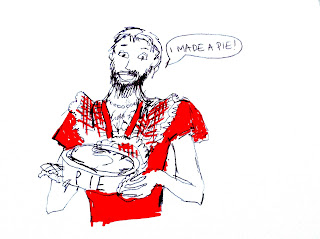This is a question that many of us will have asked ourselves last Thursday on our way (or not) to the polling station.
This recent election, marking a shift from two party politics to multi-party politics has provoked much debate about the fairness of our voting system.
We all know that the Conservatives won the election, by a slim margin of 12 seats, however what you may not realise is that only 39.6% of votes were for the Conservatives. That is to say that over 60% of the electorate did not vote for the party currently leading our country. Fair?
Some say yes, others say no.
If we had had proportional representation instead of first past the post, the seats in parliament would have been as follows: (please know that it was very difficult to find these figures as there are lots of conflicting numbers out there, so perhaps it is best to take this as a rough estimate)
Conservatives: 240 seats
Labour: 213
UKIP: 83
Lib Dems: 53
SNP: 37
Green Party: 24
Regardless of the accuracy of these figures, it is strikingly obvious that many more of the minor parties are represented in far greater numbers using proportional representation. Just in case you weren't aware, there are several different types of proportional representation (for example the AV ('alternative vote') option that we voted on in a referendum in 2011), however without going into too much detail, the general idea is that if a party gains 20% of votes, for example, then said party will gain 20% of the seats in parliament.
This system would dramatically change the make up of the House of Commons (as shown above), and would be beneficial for smaller parties such as UKIP, the Lib Dems and the Green Party. Many people argue that such a system would reduce the power of our government, as it would almost certainly be impossible to govern without forming a coalition, thereby reducing the government's efficiency in passing laws. Furthermore, in scrapping the first past the post system which we have now, it would be a lot harder for constituencies/areas to have an MP who represented them. That is to say that one's MP would almost certainly come from another part of the country and quite possibly not belong to the party for which the majority of constituents voted. It is clear that Brits seem to favour a strong, single party government; demonstrated by the recent Tory majority, but to what extent should we suppress smaller parties in order to have a more 'efficient' government?
Many of the smaller parties, for example the Green Party, argue that proportional representation is a for more democratic system as it more accurately represents the opinions of the electorate, and does not favour the larger parties.
To demonstrate this, we should take into account the fact that to gain just one seat, UKIP needed nearly 4 million votes, this is 100 times more votes per seat than the Conservatives needed, and UKIP received an astonishing 2.3 million more votes than the SNP despite the fact that the SNP have 56 seats in parliament. This is clearly unfair, and it means that many people are not represented by an MP from their preferred party simply because of where they live.
This means that a Labour voter in a Conservative stronghold is likely to feel like their vote is worthless, and to be quite honest, that is basically the case. Of course if we all thought like that nothing would ever change, but why should those with minority views be stuck voting in a constituency that is extremely unlikely to ever change party? In my constituency of East Hampshire, 22180 votes went to defeated parties, that is to say that all these votes meant nothing. All those people went unheard and their votes were wasted. The current system also means that two thirds of the MP's elected in 2010 did not have the support of the majority of their constituents. Think how many disappointed voters that figure equates to. Unfortunately there is no clear or easy way to solve this injustice, and it remains unlikely that we will see change whilst the large parties continue to benefit from the current system and thereby are unlikely to pass a law that would not act in their favour.
However, undoubtedly there are flaws with the system of proportional representation, and perhaps not everybody would want 83 members of the UKIP party in government, but the fact remains that this system would certainly allow for a fairer representation of parties in the House of Commons. As our political system becomes less about Tory vs Labour and more about the smaller parties too, it is inevitable that the appetite for a reformed voting system will continue to grow.
Written by Lili
Picture Credit: Ellen
P.S. As a little aside, the process by which we elected our MEP's is proportional representation, and this has allowed for the rise of extreme right wing parties throughout Europe....(to the extent that an estimated third of MEP's will be anti-Europe in the coming years) think what you will about that...
http://www.bbc.co.uk/news/election-2015-32601281
http://www.bbc.co.uk/news/election/2015/results
http://www.express.co.uk/news/politics/575888/Ukip-would-have-83-seats-under-proportional-representation
http://en.wikipedia.org/wiki/United_Kingdom_Alternative_Vote_referendum,_2011



















